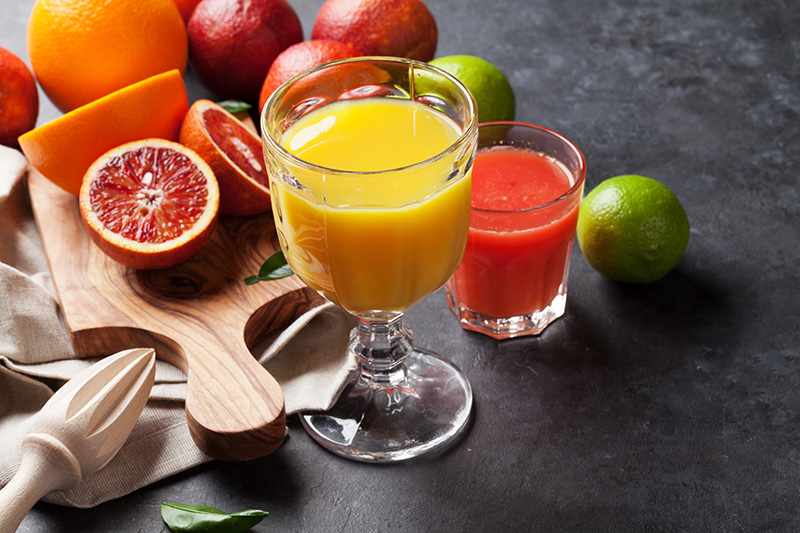More Health and Nutrition Bites
Related
More evidence against sweet drinks
Aside from the fact that they are too often excess, empty calories, we have seen in multiple studies that apart from their caloric content they have been linked with a greater risk of stroke, poorer metabolic scores, and may contribute to higher blood pressures.
Daily juice intake linked to higher central blood pressure
If you've kicked your soda habit in favor of juice - because it seems healthier - you might want to rethink that decision.
Fresh Juice Better; Water Still Best
The kinds of beverages people tend to drink varies by ethnic group. In the United States, for example, middle-aged and older Mexican Americans tend to drink more sodas and sugar-sweetened beverages than non-Hispanic whites. People in Central America tend to drink more soft drinks and consume more sugar in general than those in more developed countries.
Health & Nutrition Bites
Get the latest health and diet news - along with what you can do about it - sent to your Inbox once a week. Get Dr. Gourmet's Health and Nutrition Bites sent to you via email. Sign up now!
Fruit juice and heart disease

Sometimes I am tempted to say that certain bits of research didn't need to be done at all, but then I remember that it is just as important to prove that something is not true, or not harmful, as it is to prove that something is true or good for you.
That's what I tell myself, anyway.
Today's study is yet another review and meta-analysis: that is, a study that groups together previous, similar studies in the hopes of amplifying the studies' power (Eur J Nutr 2020 https://doi.org/10.1007/s00394-020-02426-7).
The authors, all based in Italy, sought to analyze whether drinking 100% fruit juice increased the risk of heart disease. After searching the literature through August of 2019, they gathered results from 56 different studies: 21 prospective studies that quantified either 100% fruit juice intake or "fruit drink" intake and related that intake to later health outcomes; and 35 randomized, controlled trials that compared the effects of drinking 100% fruit juice with another control drink.
Question: If this study is focused on 100% fruit juice, why include studies that do not differentiate between 100% fruit juice intake and "fruit drink"? Anything labeled "fruit drink" can contain as little as 10% juice.
The authors were clearly aware of the problem, as they are careful to specify how many of the prospective studies they assessed specified results for 100% fruit juice. For example, 3 of the 21 prospective studies reported results for the risk of cardiovascular disease with 100% fruit juice consumption.
Only 5 prospective studies analyzed the risk of developing diabetes with 100% fruit juice consumption.
Only 2 prospective studies looked at hypertension (high blood pressure) and 100% fruit juice consumption. Similar numbers applied for other outcomes.
On the other hand, the authors pooled the results for 25 randomized controlled trials and looked at the effects of drinking 100% fruit juice compared to placebo on blood pressure, finding that 100% fruit juice intake showed "a significant reduction of both systolic and diastolic" blood pressure - about 3 points for systolic blood pressure (the top number) and 2 points for diastolic blood pressure (the bottom number). (In this context the word "significant" means "statistically significant" - not "life changing.")
Little else was found to be significant - not body weight change, cholesterol scores, glucose metabolism, or risk of stroke.
Thus the authors conclude that "low-moderate 100% [fruit juice] consumption is not associated with increased risk of [cardiovascular disease]" and further assert that drinking 100% fruit juice "is associated with apparent benefit against the development of [cardiovascular disease]," citing its effect on blood pressures and arterial function.
What this means for you
We already know that you're better off eating the fruit rather than drinking the juice: we've seen that those who increase their intake of fruit juice are more likely to develop diabetes and drinking fruit juice on a daily basis has been linked to higher central blood pressures. Why anyone would feel the need to investigate whether drinking 100% fruit juice will give you heart disease is beyond me.
Actually, it's not: this study was funded by the European Fruit Juice Association.
First posted: November 11, 2020

